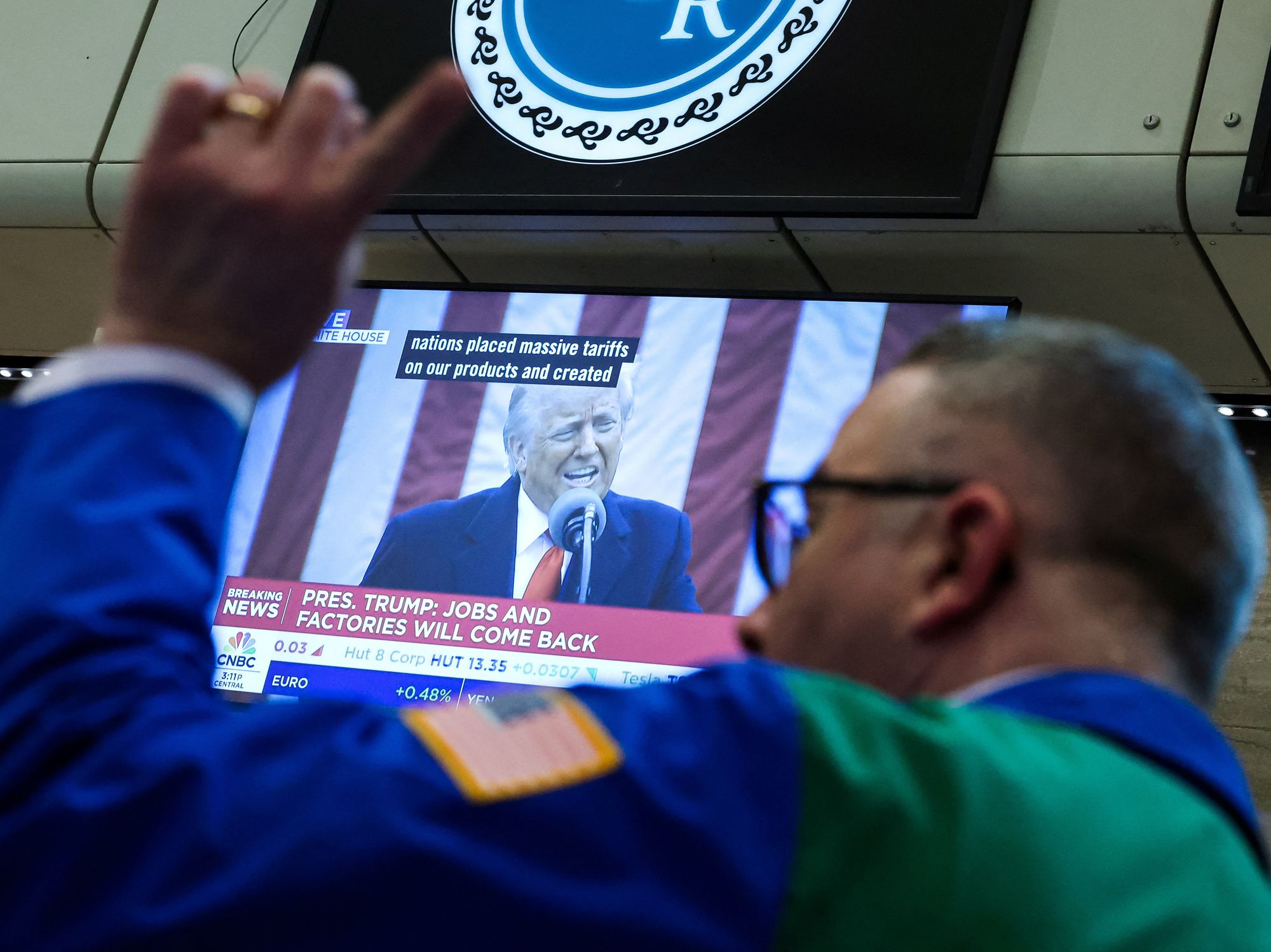'Will EU have listened to Lord Frost and accept the UK’s longstanding concerns as legitimate, or will it risk blowing up the protocol all together?'
Don't Miss
Most Read
Trending on GB News
What on earth is going on with the Northern Ireland protocol?
This is usually a dry issue but there are important goings on and I promise these next few minutes are worth your time. Understanding this issue is vital for the unity of our country.
The Protocol was established as a compromise - devised under the dying days of a hung parliament – designed to ensure no ‘hard border’ on the island of Ireland, allowing the free flow of goods from north to south.
It means that - while Northern Ireland is within the UK’s customs union and outside the European Union - the protocol also keeps Northern Ireland in the EU’s single market for goods.Inside the UK’s customs union, inside the EU’s single market.
A half-way house that creates some trade barriers with the rest of the UK.What checks there are between Great Britain and Northern Ireland are meant to be light touch and non-intrusive. Yet they plainly aren’t. Some shortages are being seen on Northern Irish shelves.
Bureaucracy intense quality checks risk even medicines being disrupted.These are the same medicines that are freely available on shelves as things stand, but that are put at risk by what the European Union describes as concerns about the integrity of its own market.
As if goods moving from Great Britain to Northern Ireland are of such implausibly poor quality that they could somehow pollute the EU, or that almost everything has to be checked in order to spot smuggling.
The UK has grounds for serious complaint that the EU is implementing the terms of the agreement too officiously, against the spirit of the protocol.Indeed, under the terms of the agreement, ‘trade diversion’ or ‘serious economic, societal or environmental difficulties’ must not be created.
The now famous Article 16 ‘break clause’ of the protocol states that any party to the agreement can unilaterally take safeguarding action.
“if the application of this Protocol leads to serious economic, societal or environmental difficulties that are liable to persist, or to diversion of trade.” As the Protocol states.Well back in September, the UK said that those conditions were met, although at first held back from triggering Article 16, saying that before it does the UK will attempt a fresh negotiated settlement.
This is in the context of soured relations after the EU threatened to trigger Article 16 in January this year, in order to disrupt the flow of vaccines. Although the bloc backtracked from its extraordinary and callous threat, this widened the Overton window of what was deemed possible. If the Europeans could threaten to trigger Article 16, Britain could too.And that leads us to where we are now. On Wednesday the EU will bring forward proposals on reforming the protocol.
Some look very positive – reports suggest the EU’s proposals will effectively do away with all paperwork for goods destined for Northern Ireland, a significant change. Instead of a goods border in Irish Sea, there could be a sort of “green lane” (for goods going to and staying in Northern Ireland) & “red, checked lane” (for goods intending to travel beyond Northern Ireland.
Interesting stuff. But there’s a sting to it.
The European Union looks like it will offer no concessions on the role of its courts in dispute settlement. The UK wants more independent arbitration, while the EU wants its institutions intimately involved.Enter Irish Foreign Affairs minister Simon Coveney, who attempted what can only be described as the opposite of diplomacy last night on Twitter.
He accused the UK Government of creating a new red line to progress. The Irish minister then went as far as to question wither the UK government wants a breakdown in relations.An extraordinary statement.The UK’s Chief Brexit negotiator Lord Frost hit back – also on Twitter.
He explained that the UK set out its concerns around the Court of Justice of the EU back in July, not suddenly now as Coveney deceptively suggested.
This is a black and white issue, and not the first time the EU has stuck its foot in it.Significant differences clearly remain, tensions are clearly high, yet also a way through is possible.
The Europeans can see that something must be done, and this week will be crucial.Tomorrow, Lord Frost is to give a speech in which will tell diplomats that removing the European Court’s role in dispute settlement is crucial to sustain the protocol.
And then on Wednesday, the EU will set out its own proposals.Will it have listened to Lord Frost and accept the UK’s longstanding concerns as legitimate, or will it risk blowing up the protocol all together? That remains to be seen.









